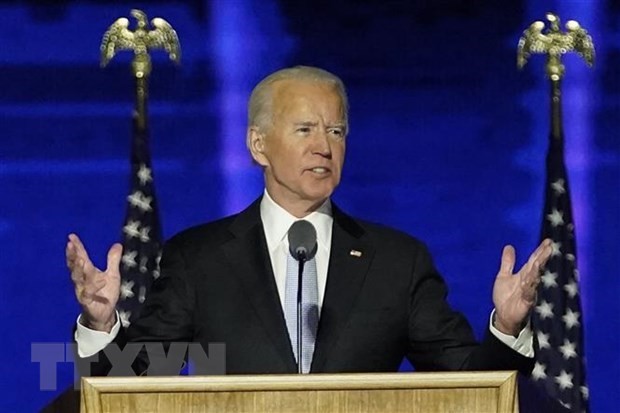(VOVWORLD) - The leaders of the group of seven industrialized countries (G7) will hold an online summit hosted by the UK on Saturday. This will be the first G7 Summit since last April and the first major global event attended by US President Joe Biden. With the COVID-19 pandemic continuing to rage globally, the G7 Summit will discuss the fight against the pandemic and economic recovery.
 US President Joe Biden (Photo: AFP / VNA) US President Joe Biden (Photo: AFP / VNA)
|
Mission
One week before the meeting, a White House statement said that at the meeting, President Biden will call for global coordination on vaccine production and distribution and supplies, and steps to head off future pandemics. Biden will also discuss his economic policies, which encourage all industrialized countries to maintain economic relief packages.
British Prime Minister Boris Johnson, President of this year’s G7 Summit, said the meeting will urge equitable global distribution of COVID-19 vaccines. Johnson said solutions to the challenges faced – from the colossal mission to get vaccines to every single country, to the fight to reverse the damage done to our ecosystems and lead a sustainable recovery from coronavirus – lie in the discussions the G7 has with its friends and partners around the world. He will ask the G7 to work on a global approach to pandemics, including an early warning system, which will end “the nationalist and divisive politics that marred the initial response to the coronavirus,” his office said. Britain will take advantage of the G7 Presidency to promote consensus in a post-pandemic economic recovery towards sustainability and free trade.
During their meeting on February 12, G7 financial officials discussed ways to strengthen cooperation to resolve the economic difficulties caused by the pandemic. Japanese Finance Minister Taro Aso said in a statement that the meeting discussed macroeconomic policies to mitigate the pandemic and help low-income countries with debt reduction measures.
Pressure and challenges
To fulfill its historical mission, G7 needs coordinated action by its member countries. But the organization is experiencing a worrisome split.
Bloomberg News, in a January 27 post quoting some diplomat sources, said the government of Japanese Prime Minister Suga Yoshihide “pushed back strongly” against British proposals to invite Australia, India and South Korea to a meeting of G7 foreign ministers and have them sign a joint charter.
Prime Minister Johnson invited South Korea, India, and Australia to the G7 summit in Cornwall last June. Inviting guest states has become customary, but the role and contribution of guest states has always been limited. In a G7 online meeting on January 22, the British government announced it was planning to ask the three countries to attend parts of a foreign ministers’ meeting and have the G7 sign an “Open Societies Charter.”
The Japanese government said the aim of the summit should be to rebuild the G7 after a difficult year, not “institutionalize” a relationship with the invited guests.
The G7’s European members – France, Italy and Germany – echoed Japan’s objection. Some said they were concerned that Britain is trying to "go back door" to reshape the G7. They warned that Britain's idea risks setting up a confrontation with China, something the G7 must avoid after it batted away Donald Trump’s attempt to do the same.